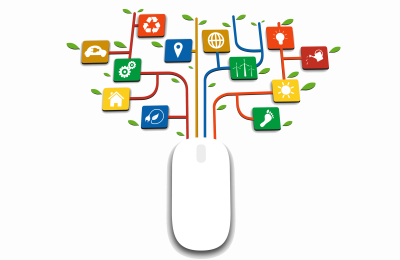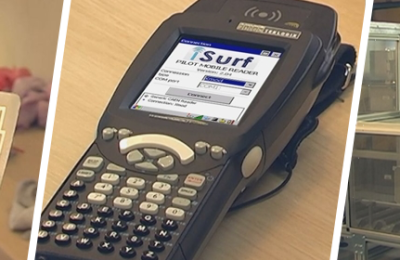Manufacturing is among the key driving forces of the European economy. It provides about 20% of all jobs in Europe (above 30 million) and generates a turnover of approx. 7,000 billion EUR in 25 industrial sectors and over 2 million companies. Industrial modernization is of crucial relevance for economic dynamism in Europe and the lasting creation of growth and jobs in the EU. However, European manufacturing is under increasing pressure from the changing market trends that require companies to react more quickly to the demands for highly customized products.
Within the overall “Digital Single Market” initiative, Digitizing European Industry (DEI) has been the strategic programme for developing a pan-European infrastructure for the manufacturing of the future. The Factories of the Future (FoF) PPP within Horizon2020 defined the agenda for the FoF-11 Call in 2016 that led to the formation of a project cluster with 10 digital platform projects all aimed at developing Collaborative Manufacturing and Logistics solutions for the European industry. Taking stock of the first two years of the DEI initiative, the conclusions of the DEI Working Group 2 on Digital Industrial Platforms (August 2017) were:
1. Member states should enhance their R&I programs on digitalization and digital industrial platforms
2. Coordination and orchestration of platform development are needed to reduce fragmentation
3. An environment should be created to support promising initiatives to achieve critical mass
4. Mechanisms need to be developed to federate dispersed activities and establish industry – relevant platforms
5. Socio-economic aspects should be considered when assessing industrial platforms
The EFPF project will directly address conclusions 2, 3, 4 and 5 and sets out impact objectives for conclusion 1 (synergies with member state initiatives). The innovation focus of EFPF (conclusions 2 – 4 above) is on combining four (4) digital platforms from FoF-11-2016 cluster and “making it work” through “federation” and “permissive open source” models. The base platforms complement each other and have a good degree of technological match, as well as a common philosophy towards governance and IPR. In addition to the base platforms, the EFPF federation provides seamless access to multiple industrial platforms and open-source tools brought in by the project partners in order to address specific needs in lot-size-one manufacturing.
Via three large scale pilots, EFPF targets agile value networks (lot-size-one manufacturing) and sustainable value networks in aviation, furniture and circular economy sectors. This will form the basis for socio-economic impact assessment of the EFPF platform as well as initiating an ecosystem for large scale experimentation through cascade-funded open calls to achieve a critical mass that is essential for future sustainability.
The EFPF Innovation Action primarily establishes an initial federation of these 4 platforms, with embedded smart factory tools and services, from the Collaborative Manufacturing and Logistic cluster (FoF-11-2016) namely COMPOSITION with its LinkSmart technology for integrated information management; DIGICOR with its focus on matchmaking and distributed production planning; NIMBLE with its focus on federated B2B market places; and vf-OS with its focus on factory connectivity tools. The federation will be served via a EFPF Data Spine component that will offer seamless interoperability of distributed tools and services by integrating, aligning and enhancing, the open APIs of the 4 platforms. The federation of these base platforms will be enhanced during the project through the interlinking of other platforms that address the specific needs of connected smart factories (e.g. ValueChain’s iQluster, Siemens’s MindSphere, Fortiss Future Factory) and also open source tools from project partners.
Achieving the above described, main goal of the EFPF project will require the following innovations and initiatives:
- Align the 4 base platforms to present a technologically integrated ecosystem ready for experimentation
- Align the tools provided by the base platforms so that they can cross-operate in the new pilot scenarios
- Extend and align the marketplace functions of the base platforms so that an open ecosystem can evolve
- Sustained market of the EFPF platform through open-call for user interest and co-creation of advance solutions
- Foster the growth of the federation and its user base by interlinking open and strategically important platforms
- A comprehensive dissemination and marketing strategy to attract companies that will adopt EFPF as their main digital business platform
- The EFPF project will initiate an open call towards the end of 2nd year of the project, inviting manufacturing companies, SMEs and researchers to carry out experiments related to the development, prototyping, integration and validation of innovative solutions using EFPF platform. The open call for experimentation will focus on two types of experiments:
Experiments for the development, testing, validation or utilization of smart factory tools and services
Experiments for the enhancement of EFPF platform through the integration of innovative solutions in the EFPF federation
The experiments will be selected through a well-established Open Calls mechanism. The EFPF project will run an effective evaluation process that will allow the selection of the best-of-the best applications. Upon an agreed contract they will then be awarded cascade funding and operate the project typically over a period of 6-12 (maximum) months.
Being one of the key partners in the H2020 NIMBLE project, which is one of the 4 platforms to be integrated to the EFPF, we will mainly work on collaborative business process execution and data exchange among the companies. In addition to these, together with SRFG, we will enable the interoperability of NIMBLE platform with the other platforms in the EFPF system.
| 1. | Information Catalyst for Enterprise | United Kingdom |
| 2. | Fraunhofer | Germany |
| 3. | SRFG | Austria |
| 4. | Airbus | Germany |
| 5. | CERTH | Greece |
| 6. | Siemens | Romania |
| 7. | Instituto Superiore Mario Boella | Italy |
| 8. | Value Chain | United Kingdom |
| 9. | Fortiss | Germany |
| 10. | NextWorks | Italy |
| 11. | Control2K | United Kingdom |
| 12. | Almende | Netherlands |
| 13. | Hanse Aerospace | Germany |
| 14. | CNet Svenska AB | Sweden |
| 15. | KLEEMANN HELLAS S.A | Greece |
| 16. | Eldia SA | Greece |
| 17. | Ascora | Germany |
| 18. | Caixa Magica | Portugal |
| 19. | AIDIMME | Spain |
| 20. | LAGRAMA | Spain |
| 21. | Brimatech | Austria |
| 22. | Elanyo GmbH | Germany |
| 23. | SRDC | Turkey |
| 24. | Walter Otto Müller GmbH & Co.KG | Germany |
| 25. | Innovint Aircraft Interior GmbH | Germany |
| 26. | AM Allied Maintenance GmbH | Germany |
| 27. | 3D ICOM GmbH & Co. KG | Germany |
| 28. | IT Innovation | United Kingdom |
| 29. | Austrian Standard International | Austria |
| 30. | MIL OIL HELLAS SA | Greece |










Pingback: We did it in Horizon 2020 too! | SRDC